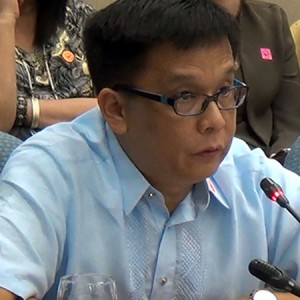MANILA, Philippines—There is no ban on the deployment of household service workers (HSWs) to the United Arab Emirates (UAE) despite the UAE government’s adoption of a new policy that bars foreign embassies from verifying the contracts of their nationals.
“There is no deployment ban on HSWs to UAE. However, the Philippine Overseas Employment Administration (POEA) will not process documented domestic workers bound for the UAE if their contracts have not been verified by our labor attaché,” POEA chief Hans Leo Cacdac clarified in a forum in Manila Friday.
Contract verification
“We continue to process [their papers] as long as their contracts are verified or authenticated by the Philippine Overseas Labor Office (Polo),” he said, stressing that contract verification helps protect workers from abuse.
On June 1, the UAE implemented a new unified contract policy to protect, it said, the rights of both employers and employees. But under this new policy, the foreign embassies in the UAE will no longer be allowed to verify the contracts of their nationals who are domestic workers.
Implementing own laws
“Of course, the UAE has its own authority to implement its own laws. The UAE government believes they have jurisdiction since the employment is there. But we also have our own laws that we must impose since the workers come from our territory,” Cacdac said.
He admitted the apparent nonverification of contracts by Polos had resulted in a decline in the number of HSWs being deployed to the UAE.
“We stopped processing because no contacts verified by Polos are coming in. There are a few coming in, but the volume is not as big as before,” Cacdac said.
He explained that contract verification had always been a requirement under Philippine laws and the regulations on overseas employment, which were strictly applied on all countries of destination of overseas Filipino workers, including the UAE.
“Without the requisite verification, HSWs who will travel to the UAE will be vulnerable to human trafficking, which we must avoid,” he said.
To prevent this, the POEA will work closely with the Bureau of Immigration and the Inter-Agency Council Against Trafficking to ensure that OFWs intending to work in the UAE as domestic helpers through modes of entry other than a regular work visa would not fall victim to human trafficking, Cacdac said.
Bilateral discussions
The POEA chief also expressed optimism the current situation would pave the way for bilateral discussions between the Philippine and the UAE governments, particularly for the development of a mutually recognized contract for HSWs.
“We already have a bilateral agreement with the UAE on general types of workers in 2007. But we need a specific protocol on the protection of domestic workers,” he said.
RELATED STORIES
POEA suspends deployment of maids to UAE
Jollibee putting up shop in UAE
